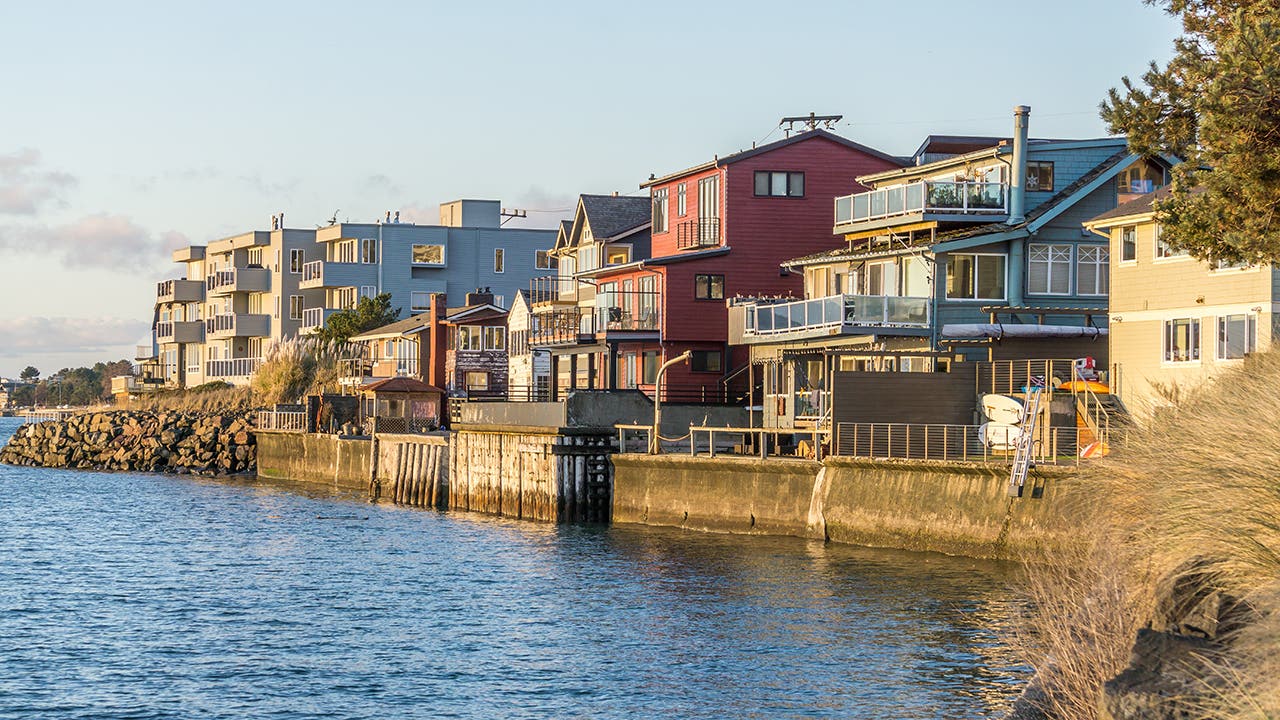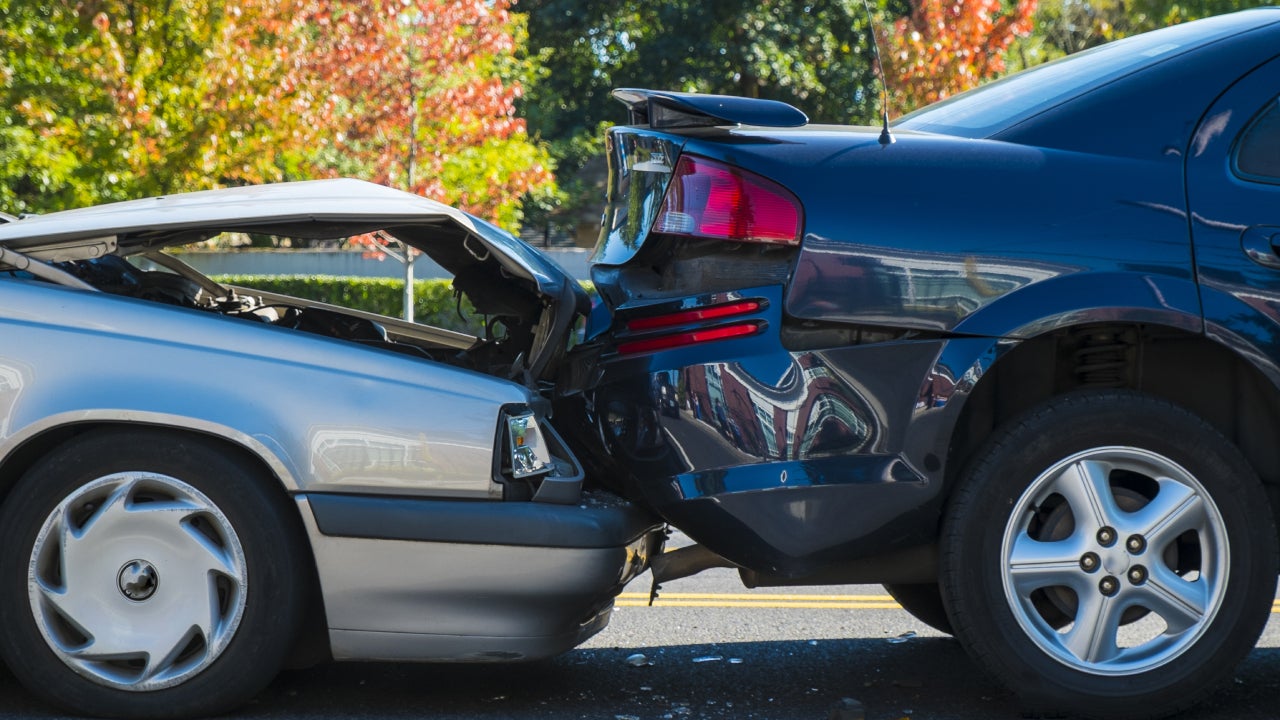Buying a house in Washington: A how-to

If you’re trying to figure out what to expect when buying a house in Washington, the process depends on where exactly you’re aiming to land in the Evergreen State. For example, Seattle — home to many well-paid workers in the tech industry — is extremely expensive. The city’s average sale price hit $935,000 in September, according to a housing report by the Madrona Group. Elsewhere in the state, though, your budget can look quite a bit smaller. In Spokane, for example, Redfin data shows the median sale price at just $380,000.
No matter where you’re hoping to become a homeowner in Washington, you’re probably trying to answer a tough question: Should you buy a house now or wait? You might have concerns about getting locked into payments with today’s high mortgage rates — and justifiably so. However, delaying your purchase can spell trouble, too, in the form of more rent payments, and the potential for rent increases due to high inflation. If you have excellent credit (at least 700, ideally 740), enough cash saved up for a sizable down payment and plans to stay put in Washington for a long time, you’re on the right track to buy. Read on for everything you need to know to navigate buying a home in Washington state.
How to buy a house in Washington
Decide where to live in Washington
From the cosmopolitan energy of Seattle to the agricultural charms of theWalla Walla winemaking region, there are so many options to consider across Washington state. In addition to how much a home will cost you in each of these places, it’s important to think about how much everything else will cost, too, like transportation, utilities, food and other essentials. For example, Bankrate’s cost of living calculator shows that Spokane’s total cost of living is more than 30 percent cheaper than Seattle’s.
While you can’t predict the future, it’s important to try to forecast what you will need down the road. Buying a house comes with closing costs beyond just the price tag of the house. With that in mind, look ahead to the next five or 10 years to try to find a home that will fit your needs down the line, especially if you plan to start a family. And if you’re on the other side of life planning, nearing retirement, you’ll want to find a home that you can enjoy when you’re done working.
Tips for buying a house in Washington
How much do you expect to borrow to buy a house in Washington? This is a key question to answer before you start comparing mortgage rates. The size of your loan, not the price tag of the actual house, will determine whether you are looking for a conventional loan or a non-conforming jumbo loan, which come with stricter credit requirements and higher down payments. Conforming loan limits in Washington state vary by county, and in the Seattle area, the limit is much higher: $891,250 in King and Pierce counties and $776,250 in Snohomish County.
Things to know about buying a house in Washington
- Property taxes: In paying for the home itself, homeowners need to pay the government every year. Property taxes in Washington are around 0.88 percent of the property’s value, according to the Tax Foundation.
- Dual agency: Dual agency, or the practice of a single real estate agent representing both the buyer and the seller in a transaction, is legal in Washington state. But you’ll have to give your written consent that you are OK with the arrangement.
- Seller’s disclosure: Washington’s disclosure-statement process is a bit different than in most other states. When you agree to purchase a home in Washington, the seller has to provide you with a disclosure form within five business days that outlines their knowledge of any defects. Then, you have three business days to accept the disclosures or cancel the contract. It’s important to note that a disclosure statement should not be a substitute for a home inspection.
- Closing costs: Closing costs can add a significant chunk to buying a home anywhere, and Washington is no exception. In 2021, they added up to nearly $14,000 on the typical home here, according to data from ClosingCorp. However, there’s good news for you as a buyer: The seller is generally responsible for paying Washington’s real estate excise taxes, which make up the bulk of that total.
- Attorneys: State law does not require you to hire a real estate attorney when buying a home here. However, it’s a smart thing to do: This may be the biggest purchase of your life, so it’s wise to have a legal professional make sure your interests are protected.
- Climate and weather considerations: Wildfires are a risk here, as is flooding. You’ll want to determine if you need additional flood insurance to protect your property. And if you’re looking at homes along the state’s shoreline, it’s important to consider the potential impacts of rising sea levels. While the shoreline is beautiful now, it may not look the same in 20 years, which can affect property values.
How much house can I afford in Washington?
If you’re trying to figure out how much you can spend on a house in Washington, there’s a simple rule that can help you start the budgeting process: Don’t spend more than 28 percent of your income on your monthly payment. If you earn $8,000 each month, that means your monthly mortgage payment should not exceed $2,240. Use Bankrate’s new-home calculator to get a sense of what you can afford based on a complete picture of your earnings, your debts and your expected down payment contribution.
Saving for a down payment in Washington
The median down payment on a new home in Washington state was a high $77,800 in the spring of 2022 — an amount that can make any buyer on a budget do a double take. What can you do if your savings account is significantly smaller? Your best bet is to explore the first-time homebuyer programs from the Washington State Housing Finance Commission (WSHFC). The agency has a range of down payment assistance programs that can help buyers who fit into the low- or moderate-income category (a distinction that varies based on your location) secure funding for the upfront cost of becoming a homeowner. Note, though, that a number of WSHFC offerings are second mortgages. While they come with a low interest rate (a maximum of 4 percent), that can still add up.
Get preapproved for a mortgage
Before you start looking at homes in Washington, get preapproved for a mortgage. A preapproval letter speaks volumes to sellers, showing that a lender has conducted an initial review of your finances and indicated that you’re likely to secure financing. It’s a pretty easy process, too: Some lenders will issue preapprovals in just 15 minutes via an automated review of your financial information.
Find the right lender
Just because a company preapproves you for a mortgage doesn’t mean you have to stick with them for your official application to buy a home. Instead, compare a few different companies licensed to lend in Washington state to find a loan that fits your needs. It’s not just about the interest rate. Be sure to consider other questions, too: How quickly can each lender close? What fees will you have to pay? Are there any exclusive programs (like free refinancing in the future) or on-time closing guarantees?
Find the best local real estate agent in Washington
Limit the stress of house-hunting by finding the right real estate agent — one who can help you navigate the twists and turns of a confusing market. With limited inventory available, an agent’s expertise and understanding of the market can help point you to listings you wouldn’t find on your own. Realtors are especially important if you’re trying to buy a house from out of state. They can be your eyes and ears on the ground when you’re far away.
Start house-hunting and make an offer
When you’re ready to start looking at homes, be prepared with a list of what you must have versus what you can live without. For example, if you find a property that checks most of the important boxes on your list — the number of bedrooms you want and a backyard your dog will love, for example — would you be willing to deal with a longer commute to your office? Once you find the right place, your agent will help you craft a compelling offer.
Get a home inspection and appraisal
When your offer is accepted, the real work begins. You’ll want to schedule a home inspection — technically, this is an optional expense, but smart buyers know an objective professional opinion on the condition of the property is crucial. If there are any major issues that need to be addressed, you may be able to negotiate some concessions to help cover part of your closing costs.
An appraisal, however, is not optional. Your lender will require one — they don’t want to lend you more money than the home is worth. Ideally, the appraiser’s assessment will come in as the same number in your offer, or higher. If the appraisal comes in low, you’ll either need to get the seller to accept a smaller price, or you’ll need to come up with the difference in cash.
Final walk-through and closing on your new Washington home
You have one last chance to look at the home, and this time, it’s your opinion – not a home inspector’s or an appraiser’s. Use this checklist on your final walk-through to make sure the property is in the condition you expect. Once you’re satisfied with it, it’s time to seal the deal. Head to your closing with a certified check or cashier’s check to cover your closing costs (the final tab will be in your closing disclosure, which you’ll receive at least three business days prior), and be prepared to sign a stack of documents that might feel as tall as Mount Rainier. Then, you can put the pen down and pick up the keys. Congratulations, you’re officially a homeowner in Washington.
FAQs
-
If you’re applying for a conventional loan to buy a home in Washington state, you’ll need to be able to contribute at least 3 percent of the purchase price to the down payment. Other loans might depend on your credit score. With FHA loans, you’ll need 3.5 percent of the purchase price if your credit score is 580 or above. If it’s less than 580, be prepared to put down 10 percent of the purchase price, and be ready to face some extra challenges getting a loan.
-
It depends on where in the state you’re looking to buy. If you’re hoping to live in Seattle, where median home prices hover near the $1 million mark, you’re going to need to make a lot more than if you’re aiming for, say, Spokane, where median prices are a much more affordable $380,000, according to Redfin data. The simple rule you’ll hear from most financial experts no matter where you want to live: Don’t spend more than 28 percent of your monthly income on your monthly mortgage payment.
-
For a conventional loan, you’ll need a minimum credit score of 620. But the lowest rates will be available if your score is higher — 740 and above is ideal. With FHA loans, you can get approved with a credit score as low as 500, but you’ll need to make a down payment of at least 10 percent of the purchase price.
Why we ask for feedback Your feedback helps us improve our content and services. It takes less than a minute to complete.
Your responses are anonymous and will only be used for improving our website.
You may also like


Electric car facts: Bankrate’s guide to EV ownership

Cheapest car insurance for seniors in 2025



